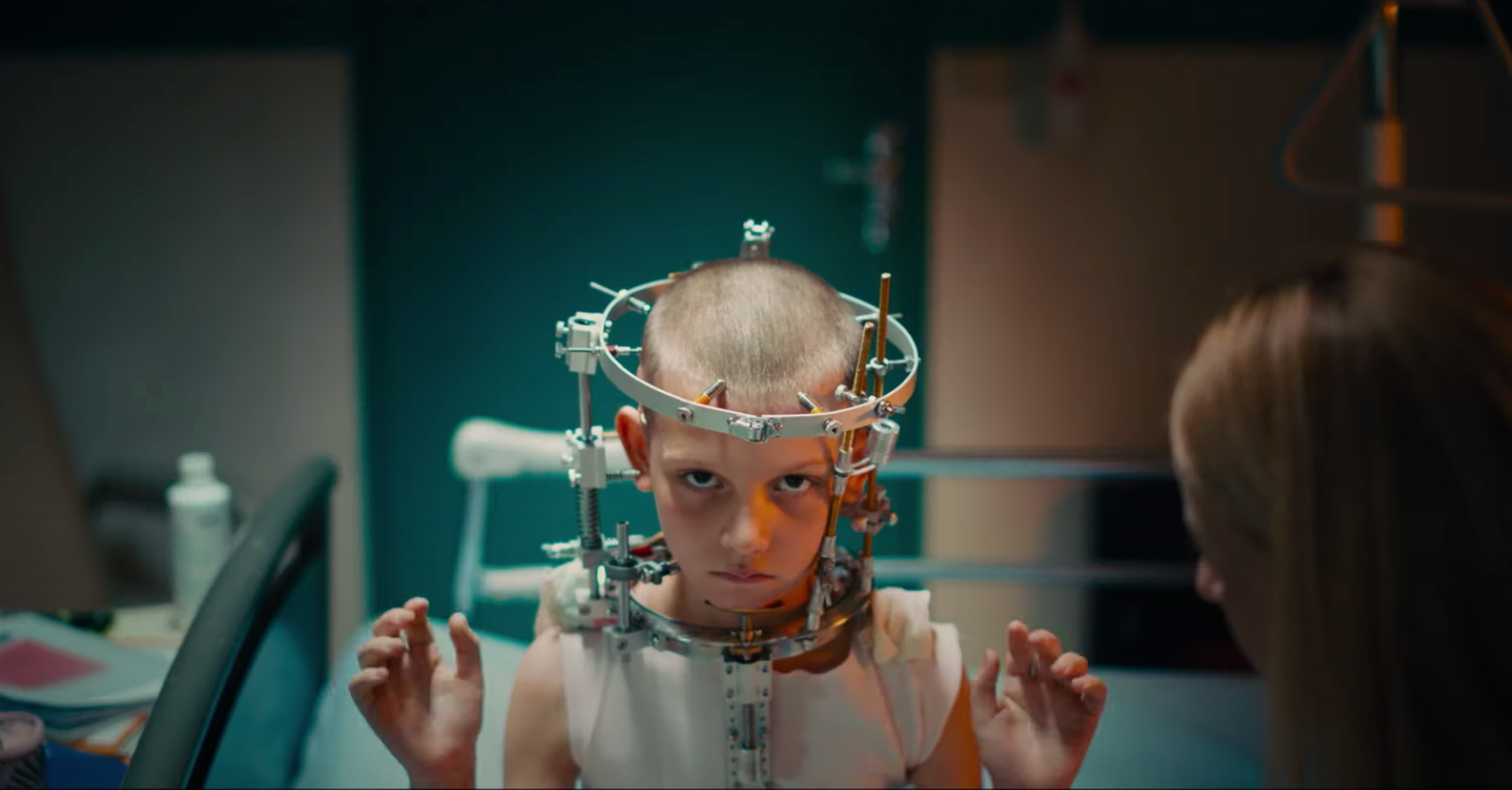Julia Ducournau's 2021 French horror film Titane stunned audiences with its original take on sexuality, gender and body horror. The body horror subgenre, featuring acclaimed directors like David Cronenberg, is rife with startling and disturbing imagery surrounding the nuances and horrors of the human body. Ducournau's Titane and her debut feature film Raw (2016) elaborate on women and their place in horror, often portraying their main characters as evolving and transforming throughout the film. But Titane elevates the subgenre by turning it into something sensual and natural. In fact, Ducournau's decision to make the main themes about love and family makes Titane 2021's most important body horror film.
Titane Has Next-Level Body Horror
Following in the footsteps of previous body horror films like Crash, Tusk and Possessor, Titane uses the human body as a canvas for surreal happenings. Rather than a haunted house or even demonic possession, these films take bodies and rip or contort them as a central part of the plot rather than simply being the result of an outside influence. The gore and blood are just as important as any other element of the film's mise-en-scène, and they often correlate with the overall meaning.
Titane effortlessly accomplishes the "point" of body horror films, creating a gruesome and disturbing spectacle that reveals another story. Alexia/Adrien's (Agathe Rousselle) body changes throughout the film, from dancing sensually on top of cars to hiding a strange pregnancy to changing her identity to that of a missing boy's. While not all of these are direct tropes of body horror, her body becomes a vessel for the film's core message and central stories.
As a child, Alexia suffered a traumatic brain injury, and a titanium plate got installed in her skull. This fusing of metal and bone inspired a change in her entire being, eliciting an unusual attraction to cars that manifested in her young adult life and her murderous spree toward other people. About halfway through the film, she suffers another blow to her head, shifting the plate and signaling the beginning of another change in Alexia's life: her transformation into Adrien, taking the identity of a missing boy in order to hide from police. Adrien must hide his pregnancy and thus begins binding her stomach and breasts before she can no longer hide her pregnant condition and her child rips its way out of her body. But while the body horror imagery of Titane is shocking and intriguing, there's something more beneath the surface.
Titane's Themes of Love Shine Through
Ducournau also wants to tell a story of family, love and finding one's identity. When the elements of body horror get removed from Titane, what's left is a story about a woman who adapts and changes in a world where she is both lost and unloved. She then finds love and a family in Vincent (Vincent Lindon), who becomes a father to her and doesn't care about who she was before.
The theme of love in Titane is not one of romance but of a desire to connect with someone else and not be afraid to show yourself to them. Alexia finds this as Adrien, with Vincent as a new father. Also present in Ducournau's film are themes of identity. Alexia's donning of the identity of Adrien provides her with a means of survival but also introduces her to a new family. In that way, Titane takes the monstrosities of body horror, with Alexia's violent harm to her own body and towards those around her, and proves that the final message can be one of love. Body horror then becomes both a means to tell the story and the story itself, showing audiences a terrible and wonderful story about love, death and becoming.



